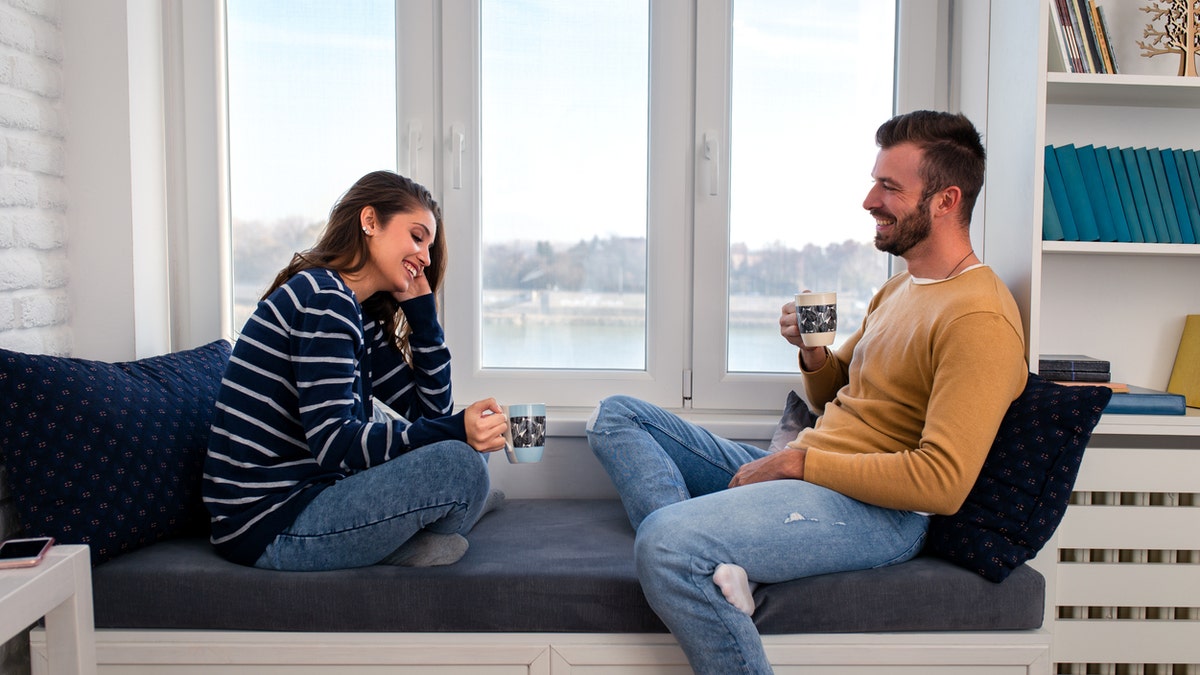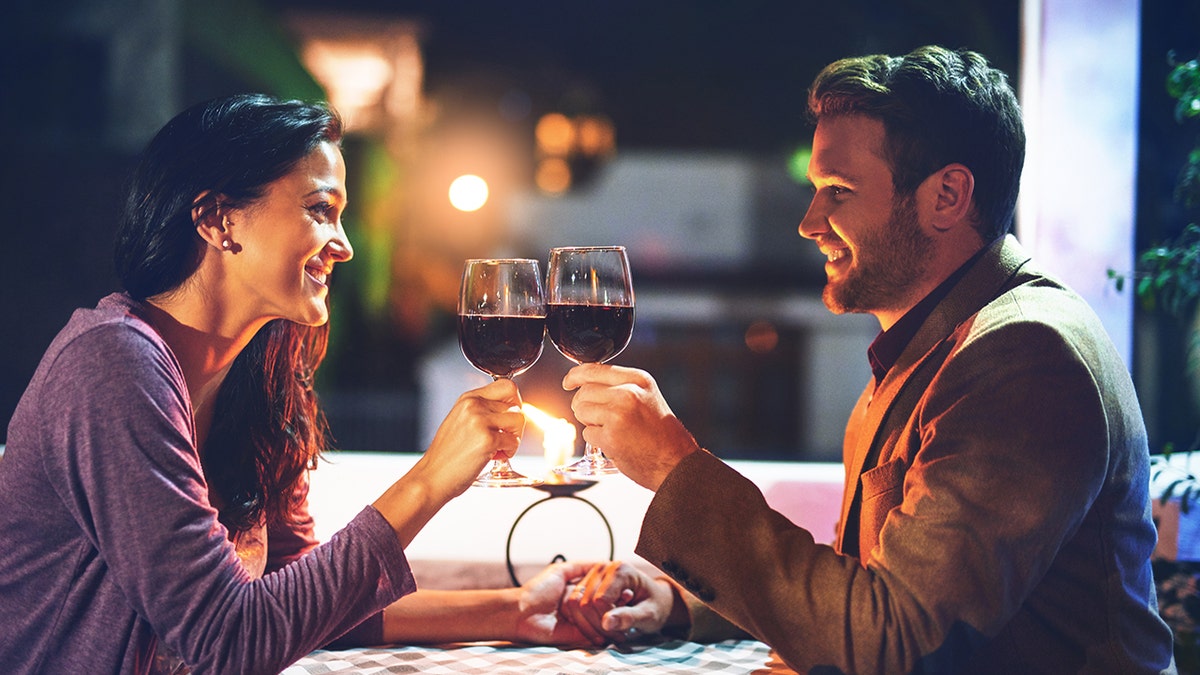Couples get married virtually during the pandemic
Wedding planners say they aren't crossing out the idea of virtual weddings being a new business model for future couples.
Get all the latest news on coronavirus and more delivered daily to your inbox. Sign up here.
Going from simply living together to spending every waking moment together can be taxing on a relationship.
For those wishing to avoid the drama that comes with constant cohabitation, psychologists Dr. Rachel M. Allan, a chartered counseling psychologist, and Ruth Cooper-Dickson, a positive psychology practitioner, are sharing their tips to keep both yourself -- and your relationship -- healthy while in self-isolation.

Going from simply living together to spending every waking moment together can be taxing on a relationship. (iStock)
CLICK HERE FOR COMPLETE CORONAVIRUS COVERAGE
Create individual and shared routines
For your own mental health, as well as that of your partner’s, it is important to “maintain some structure to your days,” Allan told Fox News.
“Get up in the morning if you are able to, and go to bed at a reasonable time at night,” she said, whether you are working from home or just living together.
However, more than just creating a schedule, Cooper-Dickson said you have to start by "coming up with your own personal day-to-day routines" under isolation.
“Come up with a plan of what your ‘normal’ weekly work routine is and how it can be adapted for isolation in the home. For example, if you usually went out for a coffee mid-morning, designate the garden as a no-go zone where you are explicitly allowed an hour of uninterrupted me time,” she said, stating the importance of individual “protected time.”
Allan said it is crucial to carve out this time for your own daily tasks, but also to create a blended routine.
“Build planned joint activities into your day-to-day routine. This can be as simple as scheduling a coffee or lunch break together during the working day if you are both working from home. These milestones give us something to focus on, and create an experience of re-grouping after spending time on separate tasks,” she said.
CLICK HERE TO SIGN UP FOR OUR LIFESTYLE NEWSLETTER
Spend time alone
As important as it is to have separate routines, so is carving out time to be completely by yourself, for the health of both yourself and your relationship, according to both Allan and Cooper-Dickson, who conducted their research on behalf of Audley Villages.
But this actual self-isolation is not meant to cause distance between you and your partner, but rather strengthen the bond, Allan explained.
“Whether it is connecting with friends and family online, participating in work meetings, reading, learning or otherwise, make sure you participate in activities separately from your partner as much as possible,” Allan said. “This makes coming together for meals/coffee breaks/relaxation more rewarding, as you will have had time apart to engage with something outside your isolation bubble.”
FOLLOW US ON FACEBOOK FOR MORE FOX LIFESTYLE NEWS

Just because you’re physically together, it doesn’t mean you're spending that time talking and listening. (iStock)
Maintain open communication
Just because you’re physically together, it doesn’t mean you're spending that time talking and listening.
“With uncertainty often comes the need for control. When in isolation with another person, there is a risk of projecting anxiety onto the other person, and this can include trying to control their behavior or constantly seeking reassurance from them,” Allan explained. “This risks increased stress for the other person, ands add pressure on the relationship.”
To avoid this, she advises couples to “talk openly with your partner about your own anxieties, but be open to their feedback on how your ways of coping are affecting them during isolation.”
Cooper-Dickson also said it might be hard to actively listen -- especially when you are constantly together.
“Sit down to have a meaningful conversation with your partner, no distractions or phones around. Be accepting of their points as well as your own. It will require you to be more non-judgmental in your approach, especially if you feel they are not coping as to how you might have expected in the current crisis.”
Though, if talking it out in close quarters causes more anxiety, Cooper-Dickson suggested that it may be "easier for either of you to write down how you feel rather than talk through directly."
"Creating space for honest conversations will allow you to better communicate when you feel your needs for alone time are not being met.”
CLICK HERE TO GET THE FOX NEWS APP

It is just as crucial to keep the romance alive in quarantine as it is outside of it. (iStock)
Keep date night
It is just as crucial to keep the romance alive during quarantine as it is outside of it.
“During lockdown, it is important that romantic gestures and ‘together time’ are still very much celebrated,” Cooper-Dickson said. “Get dressed up and have some make-believe fun. Set the table for a romantic dinner for two with candles and some music. Whether you are cooking or ordering take-out, enjoy some special quiet time together. Perhaps spend the evening just chatting over a drink or choose a movie to watch. Snuggle up over the popcorn."
“All the times before, with commuting and social distractions, where intimacy has taken a backseat, could now be a great time to rediscover the passion you have for each other.”








































